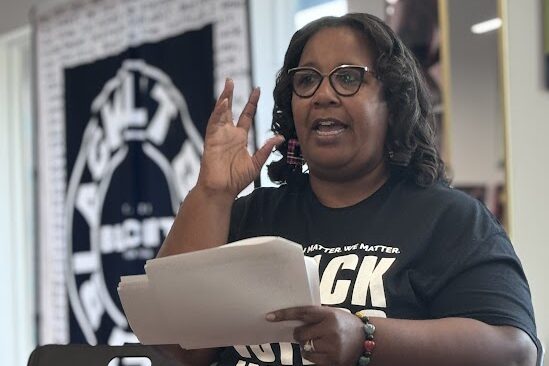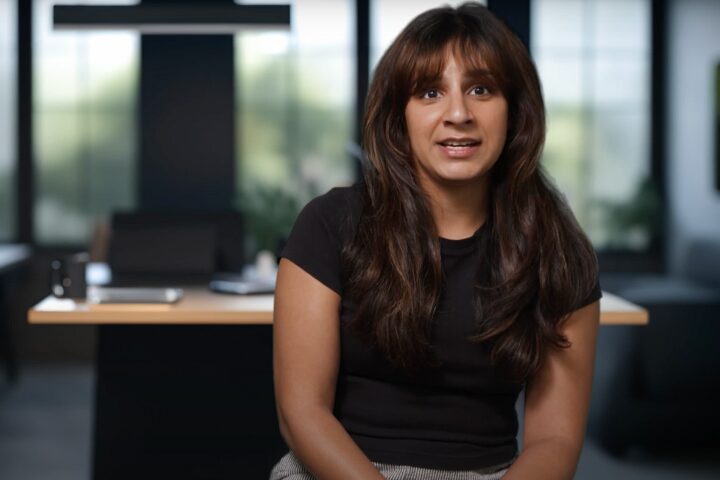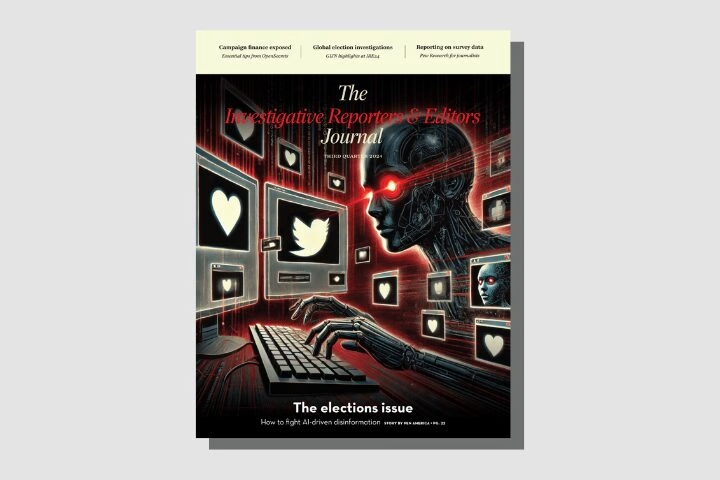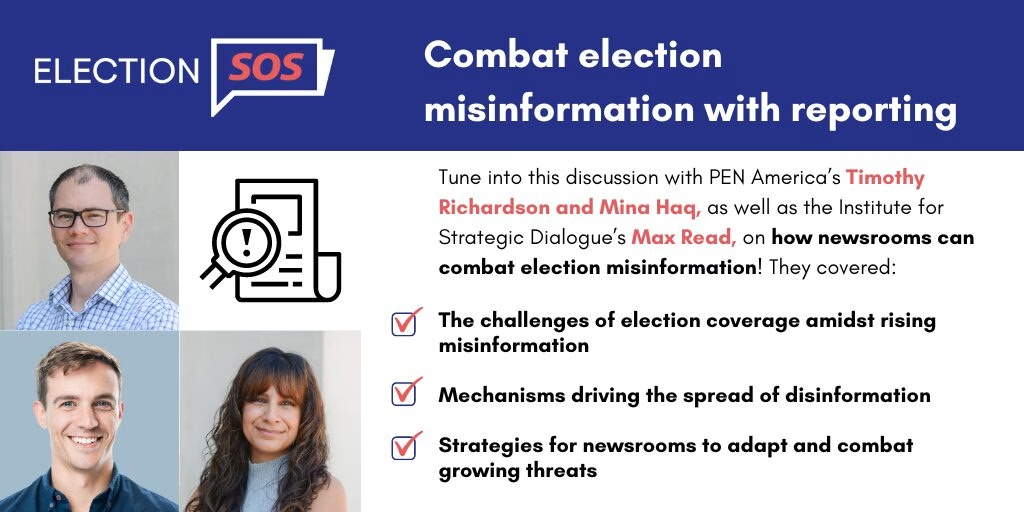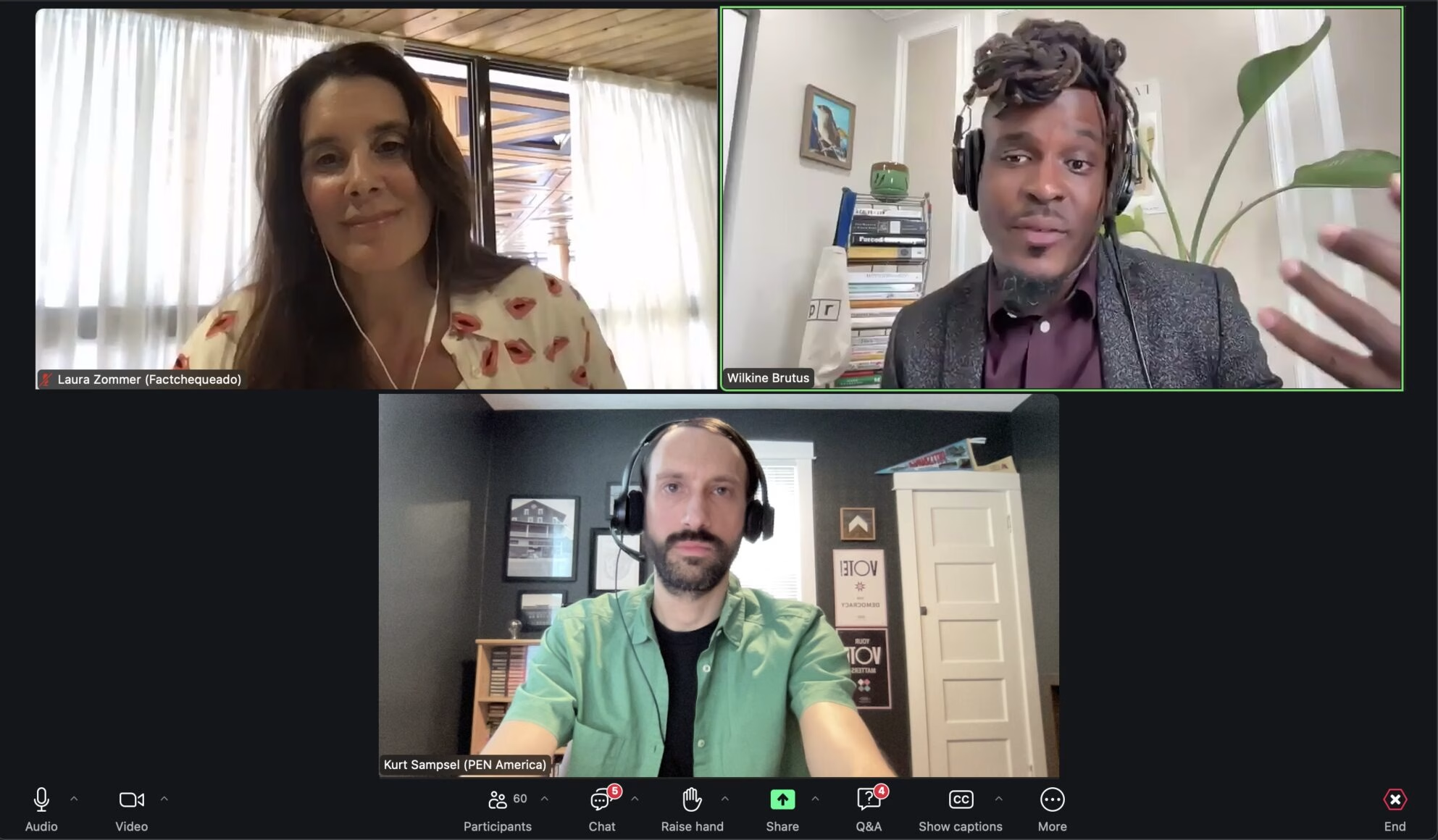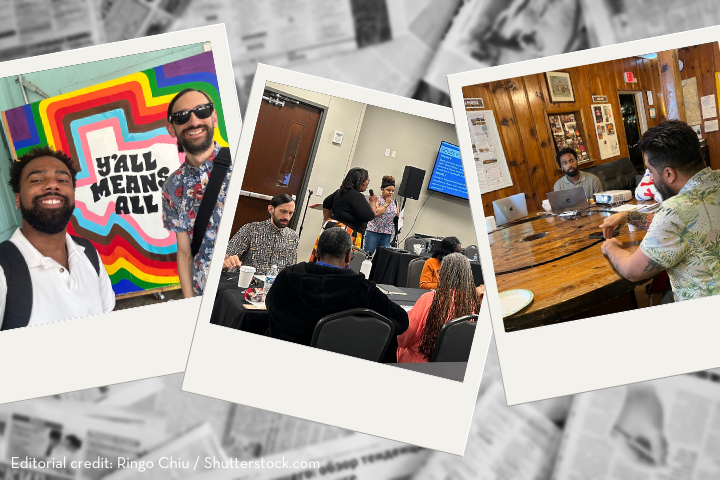This Q&A is part of a series of interviews with journalists and experts who regularly handle disinformation. The interviews will appear regularly to highlight best practices, insights, case studies and tips. Our goal is to provide a resource to assist reporters and community members through the news events of 2024.
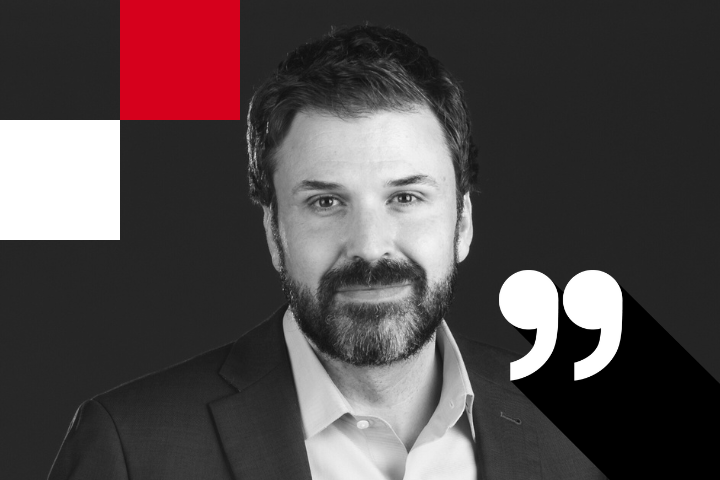
For Matt Ewalt, journalism is more than just reporting news to readers. At the Texas Tribune, he directs the events, listening sessions, and festivals that have made the Tribune a model for nonprofit news organizations everywhere. When it comes to disinformation, Ewalt says events can help by extending the reach of journalism and empowering communities.
This interview was edited for length and clarity.
You’re senior director of events and live journalism at the Texas Tribune. What’s involved in that?
The Tribune is a nonprofit statewide newsroom founded 15 years ago, and it has served as a kind of new journalism and business model for news organizations, and events have been part of that model from the beginning. We do approximately 40 free and open-to-the-public events around the state and throughout the year, meeting communities where they are, engaging Texans in conversation on issues that directly impact them in their communities. And then we have a big three-day politics and policy festival, the Texas Tribune Festival, each September.
My role involves making sure that our strategy for events is aligned with strategy for the organization and working closely with leadership across the organization on key questions. How do we want to show up with events? Where do we want to go? What partnerships do we need to build? What issues are most important to engage Texans in conversation about? Who are the voices that need to be part of those conversations? And then, I lead a small team to plan and produce those events, measure their impact, and look back to see how to learn from them.
I’m curious about the term “live journalism.” What is live journalism?
Live journalism is about giving a more public face to the journalism that we’re doing – and then providing for direct engagement between our journalists and those we serve. I think it’s a reminder that journalism is ultimately about relationships with communities. Our live journalism is an opportunity to see the work of our journalists in action as they’re engaging leaders on issues. But I’d also say it’s important because it provides opportunities for the public to hold public officials and our journalists accountable through asking questions.
I think events can function as extensions of journalism. I think about: how can we help Texans live their lives better and have a more meaningful impact in their communities, and what kinds of conversations can have a direct application to that?
I’ll give you one example. Our newsroom did reporting on the anniversary of a really awful chemical fire down in the Houston Ship Channel. Using the Tribune’s role as a convener, we were able to bring experts together at a public library, a deeply trusted civic space, in Galena Park, Texas. We had translators on site, knowing that many of those in attendance are Spanish-speaking. And we talked about things like how to monitor air quality so you know whether your children can go outside and ride their bike, how to recognize early signs of poisonous air impacting you, and then also how to make your voice heard on environmental issues in government settings.
That’s an example of how live journalism can extend journalism, strengthen relationships, and empower communities. It’s not just reporting, in other words.
You’re involved in organizing the annual Texas Tribune Festival. What do you think is special about the Festival?
The cofounder of the Tribune, Evan Smith, conceived of the festival as a hybrid of a national festival on politics and policy – and equally focused on Texas. Our speakers have a great deal of star power, but I think the real power of it is people making the choice to be part of a community for three days. Listening to a podcast or sitting down to read a piece of journalism is an act of leaning in, but stepping into a room to engage with people in conversation about issues you deeply care about is a different level of engagement.
You might listen to other people who share your same politics on issues and find out that you are both deeply involved in pushing a certain issue forth in Texas. And, on the other hand, if we’ve done things right – even with how polarized we are – you also enter into conversation with people who may think differently than you. Ultimately, being intentional about entering a space and joining a conversation can have real power at a time when we can often just be bombarded by noise.
Speaking of noise, many news organizations are trying to support the public amid mis- and disinformation. How do you think events can contribute to that work?
I think events can do a few things. One is the opportunity to clarify issues through convening people and allowing Texans to ask questions directly to their officials as a way to surface authoritative, trustworthy information. But another is the way that we use listening sessions with the people we serve to learn about what their information needs are so that we can address them better as a news organization.
Based on the learnings from these listening sessions, our audience team collaborates with our reporting team to use what we learned to produce things like our voter guides, which address the basic questions like what are the issues on the ballot, how does one register to vote, and what do voters with disabilities need to know about participating.
You led a listening session earlier this year to learn about people’s attitudes related to democracy and information. What stands out from that event?
We wanted to ask Texans about the state of democracy in Texas, the issues they care about, how they stay informed, and also their opinions about journalism and what sources of information they trust. We intentionally used trusted civic organizations in Dallas–Fort Worth and other communities around the state to reach audiences that may not know much about the Tribune. And although we recorded the conversation, we did it off the record so people could be candid.
I think it was eye-opening. It was refreshing to be able to hear people talk about some of their larger frustrations. People talked about feeling left out of democracy. And people said you can find news to fit your opinion, no matter what. A quote I remember is “In the world we live in now, everything is marketing. I just want to know the facts.” They talked about this larger issue of news avoidance – how even those who are otherwise well-informed, for their own mental health, just need to tune out more and more.
We also talked about trust and transparency in the media. I think that’s another benefit of live journalism – it allows journalists to talk with the public about how they do the work. Instead of journalism being something that’s done behind closed doors, events like these give people a sense of how information is gathered, how tools are used, and how news is produced.
Disinformation can make people feel powerless, but through events, by giving the public an opportunity to challenge public officials and to challenge us as journalists to do better and to address their needs and their concerns, we’re giving people a kind of agency.
How do you think news organizations can use events to address disinformation?
When I think about disinformation, I also think about news avoidance and news deserts – communities that have no local news – and I do think it’s helpful to think of those things as connected and to position ourselves to listen in order to develop tools to help. That’s a way live journalism can help. Our listening sessions remind us that there are Texans across political differences who want to make their communities stronger and need good information to do so.
I also think news organizations need to remind ourselves that we’re in this together. We can and should share with our “competitors,” and we can partner with trusted institutions to reach new audiences, sharing lessons learned and best practices.
Matt Ewalt is senior director of events and live journalism at the Texas Tribune, a statewide, nonprofit news organization serving Texas. He is responsible for the strategy and execution of events, including the annual Texas Tribune Festival. Before working at the Tribune, Ewalt served in a variety of administrative roles at the Chautauqua Institution in New York and was a journalist in northwest Pennsylvania.

